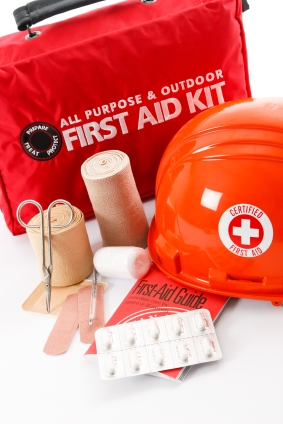 In a difficult economic climate, most people are grateful to be gainfully employed. However, there are times when employees accept unsafe or unjust workplace conditions simply because they fear losing their jobs if they “rock the boat.” However, recession notwithstanding, employees should be aware that the law protects their right to a safe and hazard-free work environment.
In a difficult economic climate, most people are grateful to be gainfully employed. However, there are times when employees accept unsafe or unjust workplace conditions simply because they fear losing their jobs if they “rock the boat.” However, recession notwithstanding, employees should be aware that the law protects their right to a safe and hazard-free work environment.
OSHA (Occupational Safety and Health Administration) protects the right of employees to request a workplace inspection if they feel their jobs pose a threat to their wellbeing. Under OSHA regulations, employers cannot in any way discriminate or retaliate against employees who file such a request.
During an OSHA inspection, workers (or their representative) have a right to talk privately with the inspector before and after the inspection. They may also participate in meetings with their employer and the inspector.
Aside from their right to request an OSHA workplace inspection, workers should also be fully informed about the potential hazards of their job. Furthermore, they should be properly trained and equipped to handle these hazards. The law requires employers to provide this training free of charge and in a language and manner that workers can readily understand.
OSHA also protects the rights of workers to review records of work-related injuries and copies of medical records if warranted. When an employer receives a citation from OSHA, workers have a right to be informed about the progress of the case.
When requesting a workplace inspection, employees can ask that OSHA not reveal their identity to their employer. Workers have a legal right to refuse to work without risk of termination if they deem that a present workplace hazard poses an immediate threat to their safety. Whenever possible, however, they should first bring the matter of workplace dangers to the attention of their employers.
Although it is challenging to find work in a difficult economic environment, workers should nevertheless be aware that their jobs and their well-being are protected by the law, and they do not have to risk their safety in order to hold on to their jobs. They have a right to a safe work environment no matter what the prevailing economic climate may be.
About the Author:
Beth C. writes on behalf of the medical malpractice lawyers Ballard and Feagle, LLP, who also specialize in personal injury and wrongful death. Beth lives in Atlanta and enjoys writing about a variety of topics, including labor law and property management.